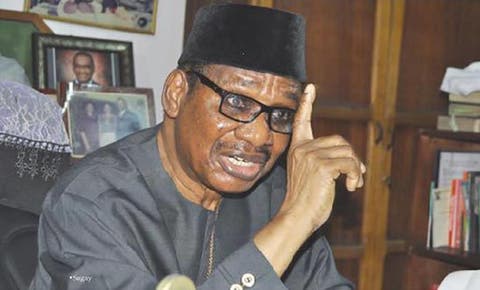The Prof. Itse Sagay-led Presidential Advisory Committee Against Corruption, on Wednesday, accused the Attorney-General of the Federation and Minister of Justice, Abubakar Malami (SAN), of having well-known proclivity for aborting high-profile criminal cases in favour of major political and governmental figures.
The PACAC, in a statement signed by Sagay, and released by the Communications Unit of the committee, said this while reacting to the proposed bill for the amendment of the establishment Act of the Economic and Financial Crimes Commission.
While arguing that the proposed amendment of the Act was part of “an ongoing very sinister and dangerous attempt to demolish the anti-corruption infrastructure of Nigeria and return it to the situation it was in during the dark days before 2015,” the panel urged Nigerians and the National Assembly to reject it.

Sagay added that those behind it “are the representatives of the corrupt establishment that brought this country to its knees and subjected us to humiliation as a result of an extremely negative reputation internationally.”
The controversial bill seeks to weaken the EFCC and its officials, and confer an enormous power of control of the anti-graft agency on the office of the AGF.
Although Sagay did not mention Malami as the sponsor of the controversial bill, he tackled the minister for what he described as his proclivity for aborting criminal cases in favour of major political and governmental figures.
He noted that the draft bill, which intended to repeal the EFCC Establishment Act, 2004, was being sponsored by those who were “too ashamed to put their names to the draft bill being circulated.”
Malami, whose memo to the President, Major General Muhammadu Buhari (retd), triggered the ongoing probe of the suspended acting Chairman of the EFCC, Mr Ibrahim Magu, by the Justice Ayo Salami-led panel over various allegations of corruption, abuse of office, and insubordination, has been linked to the controversial bill in the media.
The minister has neither denied nor confirmed the rumours.
Citing various provisions of the bill, Sagay said it would eliminate the anti-graft agency’s “freedom and autonomy” and replace it with “an entity under the complete control of the Minister of Justice and Attorney-General.”
He added that the proposed bill would effectively turn the commission into a department in the Federal Ministry of Justice.
The statement read in part, “With all the above established facts, the gravity of the proposed change becomes overwhelming.
“When in addition to all this, we recall the well-known proclivity of the attorney-general for entering nolle procequi in favour of major political and governmental figures, this move to effectively scrap the EFCC becomes more alarming.
“We therefore call on the National Assembly and all Nigerians to vigorously reject this attempt to perpetrate fraud on the nation by effectively scuttling the EFCC and shutting down Nigeria’s anti-corruption war.”
Offensive highlights of the proposed bill, according to Sagay, include, “the repeal of the current EFCC Establishment Act, which has been a spectacular success and has brought Nigeria into limelight as a major force against corruption.”
He added that the bill proposed the scrapping of the commission and replacing it with a weak agency, which would be effectively a department in a Federal Ministry of Justice under the AGF.
Sagay listed the weaknesses in the proposed bill to include, “The replacement of the Executive Chairman of the EFCC with a director-general, who is effectively to be appointed by the attorney-general eliminates the EFCC’s freedom and autonomy, and replaces it with an entity under the complete control of the Minister of Justice and Attorney-General.”
Attempts to get the reaction of Malami’s spokesperson, Dr Umar Gwandu, to the various allegations levelled against him by the Sagay committee, were futile as he neither take his calls nor responded to a text message sent to him on Wednesday.









